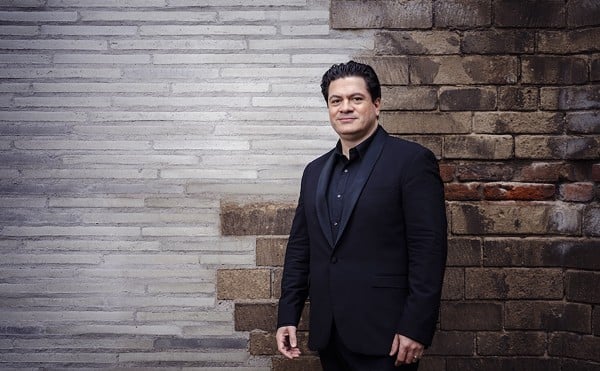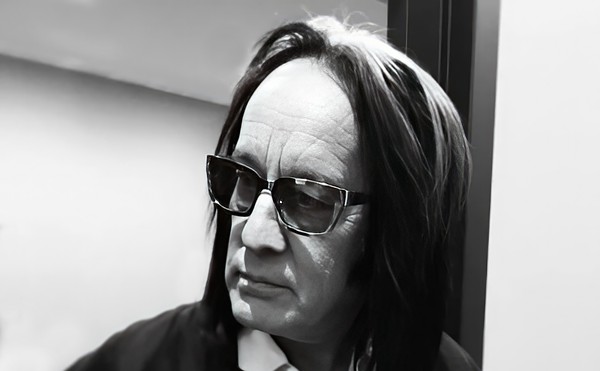|
Last year, around the time of the Cincinnati Entertainment Awards in November, there was a mantra flooding the local music scene: "Music has become our finest export and our best ambassador."
There were gigantic posters in every Main Street venue, proudly donning the miniaturized pictures of every nominated band for the year's awards ceremony. Every person that walked by those posters stopped, and, with excitement, would pick out the musicians they knew. Those are the images that seem to add energy to a scene filled to the brim with talent and determination.
Lately, with the closing of many beloved original-music-friendly bars in the Main Street district in Over-the-Rhine, the attitude has changed. Musicians are increasingly becoming disheartened, noticing that attendance at shows is waning and the streets are practically empty. Local music fans are concerned about safety issues. Musicians reiterate that there is simply nothing left, and a twitch overcomes a musician's face when the future of important city music festivals is mentioned.
MidPoint Music Festival is one such festival that is repeatedly mentioned when the "demise of Main Street" is pondered. In September, the festival founded by local musicians Bill Donabedian and Sean Rhiney enters its fifth year of residency on Main Street.
Much of the festival's success is due to the close proximity of the many venues that Main Street has offered in the past. This year, the festival remains on schedule and it will partly take place in some of the recently closed venues. Several bars will be reopened (including the area's latest casualty, alchemize, which shut its doors in July) and run by professional contractors. So, in essence, the MidPoint staff is "reopening" the Main Street bar district Sept. 20-23 to original music fans, hosting 284 national and local artists.
The venues that remain in business are eager to support the festival. Clubs in the area like Arnold's, Courtyard Café, Blue Wisp, The Exchange, Mr. Pitiful's, Neons, Kaldi's, Red Cheetah and Coopers on Main are all on board, as well as the newly renovated Know Theatre on Jackson Street (just off the Main strip), which will host two stages.
When speaking to Rhiney, singer/bassist for Clabbergirl, about the general demise of Main Street, his memories are from a musician's standpoint.
"I remember we used to laugh when we played at Overflow (most recently Harry's Pizza on Main)," he says. "You would know everyone in the building when you were playing, but it was great to see people walk by and look through the window and come in. You could tell that those were the standard folks that lived outside of the city limits and were coming here to get their drink on, or their dance on, and they ended up poking their head in and actually listening to a local band. And that is what we will miss if we don't revitalize."
Many are wondering how exactly that revitalization can happen. Crime perceptions scare some away, people are migrating to other scenes in areas like Northside and Northern Kentucky, and the general consensus among local original musicians exudes a lack of hope. But, in a cycle of renewal, there must still remain a cycle of support. The Courtyard Café is among the beacons of light. The bar staff tends to its patrons and is actively involved in supporting Main Street and local musicians. The bar has been open for 14 years now, and according to owner Sue Traut, the future is optimistic. Instead of focusing on the loss of venues, she is concerned with what her place does best: good food, friendly atmosphere and providing a personal experience for local original music fans and performers.
The trend of discouragement among musicians and fans can be seen throughout the city — no place more evident than on MySpace. A recent comment on a MySpace Web page from one local band to another out-of-town band asking where they should play in Cincinnati was especially disheartening. The local band urged the other to stay away from the city because it was dead.
While there are many musicians who take their business elsewhere, there are still a few who are dedicated to keeping the Main Street scene busy while it goes through its transition.
Musicians are still avidly playing Courtyard Café. Every week, even on weekdays, there are shows at Coopers on Main and Kaldi's. Despite the cancellation this year of the monthly "Exile on Main" local music showcase, there are still events such as MidPoint and the big original music fest Jammin' On, as well as the Rivertown Music Club's monthly "Happy Hour" at Courtyard Café, that lend their support to local musicians.
Brad Schnittger of The Sundresses displays an unruffled demeanor when it comes to the recent closings. "Let them go out of business," he says. "That's how capitalism should be. If businesses are failing, they need to fail so that better businesses and businessmen can take their place. That's how revitalization happens."
When looking at the history of Main Street, one must realize that businesses come and go. Trends change, new hot spots take over in different parts of the city. Eventually new places will open up that offer something new and exciting, and people will gravitate there. Main Street was once home to Aunt Maudie's, the center of Cincy's Bluegrass universe some 30 years ago. Various music scenes in Cincinnati have routinely shifted between Clifton (a perpetual Rock & Roll haven, from the late '60s/early '70s Ludlow Garage days through the Sudsy Malone's-led Alt/Indie heyday in the '90s to today's Punk, Metal and Hip Hop at clubs like Top Cat's and Sudsy's), Mount Adams and various other neighborhoods. It's just the circle of club life.
Main Street is not dead. All hope is not lost. There is a connection between downfall, support and renewal. Once this connection is made, it is easy to begin doing the things that will lend support to its revival. It's OK for people to travel to Newport, Covington or Northside. In the future, new hot spots will fade and people will come back for more Main Street. For now, every little bit of help can make a difference.
According to Rhiney, it's easy to lend a hand to the Main Street district.
"Eat at a restaurant or buy something from a gallery," he says. "The healthier we make it for the independent people, the longer they're going to stay, and the better care they're going to take of whatever property they own or lease. Then, the more traffic there is down here at night, the less problems we'll have."





